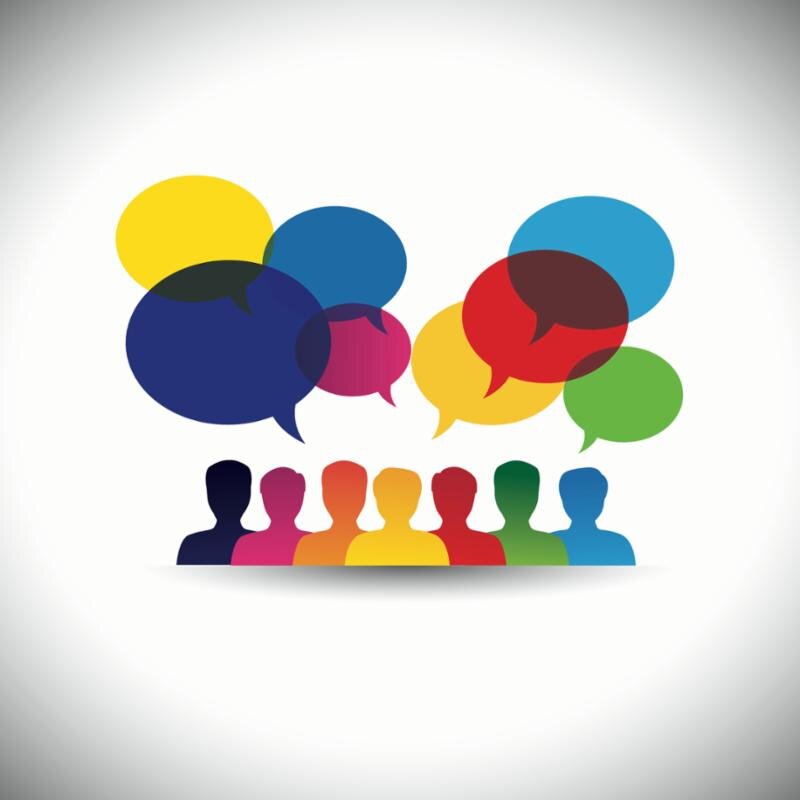WHILE WE ARE KEEPING SOCIAL DISTANCE AND HAVE A LOT OF TIME ON OUR HANDS, LET’S DO SOME CONFLICT RESOLUTION…
OBJECTIFICATION AND DEHUMANIZATION - AT THE CORE OF BIAS, BLAME US/THEM THINKING, AND MANY CONFLICTS
What is Objectification and what does it have to do with Conflict?
In social philosophy, objectification is the act of treating a person as an object or a thing. It is part of dehumanization, the act of disavowing the humanity of others. Bias, the us & them thought process, othering and the blame & shame culture is connected to the concept of objectification. One person sees themselves as in one group and identifies others as in an another group. No problem. One person sees those who are in another group and that group is seen as things, not humans. That's objectification. Meaning that the group of people have been transformed, mentally, into objects. Once transformed into objects, its easy to allow bias and blame and shame and stereotype to go unchallenged. After all:
an object can't have feelings,
I can't empathize with an object
the object is a lessor thing than I am
all those things are alike.
Do I objectify any groups?
Usually objectification occurs with a lack of knowledge and/or with limited personal experience. Years ago I might have objectified people who live in a particular place. I had limited experience with people from that place and I accepted the stereotypes. My limited, almost non-existent knowledge became rigid and I acted as if the 'objects' (people from this place) were of lesser value in comparison to those who I considered to be fully formed individuals. I negatively objectified--dehumanized-- people from this place. How about you, as you search your experience, are there people or groups of people you might have dehumanized or objectified?
Here's what disintegrates objectification--knowledge and personal connection. In order to work against objectifying the people from that particular place, I spent some time in that place having real experiences. Here's a few other ways to undo objectifying groups of people:
Pick a role model from that group. My role model is....
Read about, see a documentary about, study the group...
Say to yourself 'I am a ...(fill in the blank of the objectified group) and the one thing I never want someone to say about me is....
Consider whether you yourself have ever been objectified by another person
Listen to people use the 'we' and 'they' terms (right about now the off-Island/on-Island 'we' and 'they' might be ripe for this)
Objectification and conflict
Sometimes in a conflict the core issue is not actually the topics on the table, but the underlying objectification between both people. This can happen in community cases between neighbors or in business relationships. Over time the conflict has developed because one or both of the disputants objectifies the other. They ascribe the difficulties they are having with the other person, as happening because they are part of the dehumanized group. People cannot resolve conflicts with an object--and so until the objectification is undone, its pretty difficult to make significant progress.
Mediators can sometimes detect objectification during mediation sessions, though we can't easily undo these hardened attitudes. When we say, "I'd like you to put yourself into the position of the other person, and describe the situation from that point of view." it can help to open someone's eyes to their objectification.
There's a lot more to this topic
We've just scratched the surface here. Take a look at some more writing on this topic.
Othering "belonging must begin by expanding the circle of human concern." article
Dehumanization "dehumanization is creating an enemy image..." article
Stereotyping, Bias, and Prejudice in Conflict Resolution powerpoint by Kenneth Cloke--international mediation expert
People are hard to hate close up. Get closer. Article by Brene Brown.


